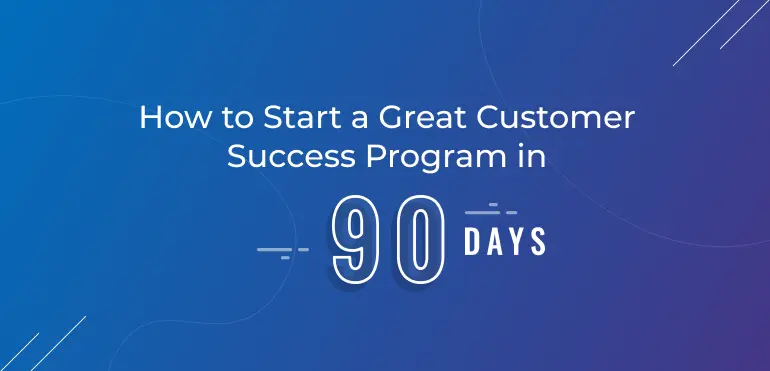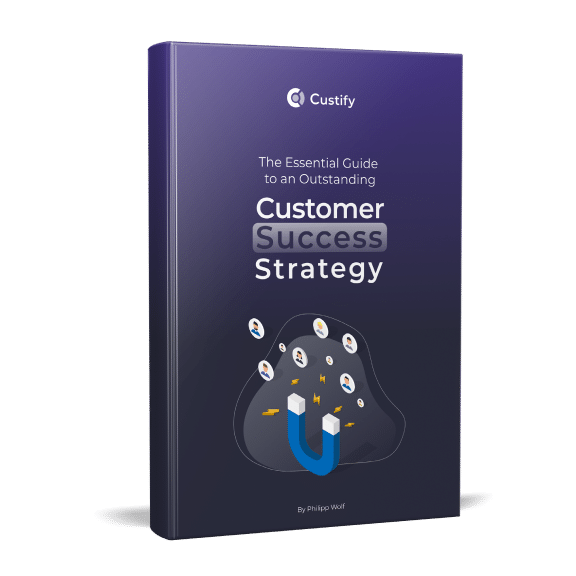Customer success managers improve the customer experience (CX) of any business. It’s probably the most essential part of the job. In a time when CX has become a key competitive differentiator, that’s a big deal.
But hiring CSMs isn’t easy. The field is still new, so few people have directly relevant experience. How do you make sure that you’re hiring the best customer success manager for the job?
We’ve put together a list of seven things you can do to make sure you hire a great CSM. It’ll help you put together a team of talented customer success professionals to take your customer experience to the next level.
Keep reading to find out how to kick the process off right.
1. Understand and Define the Role
This step is easy to miss, but it’s important that you do it first. Depending on how your organization is structured, you’ll have unique expectations for your customer success managers.
For example, you might see them primarily as a link between the customer and the correct customer support team. Or they may also handle some account management functions. Some companies might see them as auxiliary salespeople.
All these expectations have an effect on the elements of customer success your reps are expected to handle.
Spend the time to figure this out before you start the hiring process. If you look only for CSMs with sales backgrounds, you’ll regret it if you later decide that CSMs need to be able to handle support requests.
A customer success manager is mainly responsible for driving success for your clients & enabling better CX. The specifics of that role and their responsibilities beyond the definition vary from business to business. Whatever works for your company is the best choice. But you need to know what the role is before you start hiring for it.
2. Post the Job Where Your Target Applicants Hang Out
Where you post your job ad has a big effect on the types of applications you’ll receive. If you know the type of person you’re looking to hire, you can use that to select the right sites for posting.
In the post-pandemic world, remote work continues to boom. As such, one of the biggest drivers for employment, LinkedIn, is rising exponentially. The number of remote jobs posted on LinkedIn has seen a 6x increase in 2020, with an estimated 3 people being hired every minute. So it’s clear that LinkedIn is the place to be for recruiters. On the other hand, there should never be hoarded contacts just for the sake of numbers. In case of many inactive or irrelevant followers, recruiters should learn how to remove LinkedIn connections in bulk to declutter their network.
But there are other considerations, too. If you’re a small startup and you’re looking for employees that love the scrappy startup vibe, you might post on Angellist or Startup Jobs. Not everyone wants to work for a startup. But if they’re on these sites, you can bet that they’d be happy to work for yours.
You can also use niche job boards to find applicants that are specifically interested in your industry. There are tons of sites for tech jobs, but you can post on sites that focus on jobs in finance, the environment, healthcare, and more.
Businesses often post ads on multiple sites. You can certainly do that—just be sure to choose each one for a reason.
3. Look for Experience
Because customer success is still a new field, you may find that few applicants have experience in customer success roles. That’s okay. If you find an applicant that does have customer success experience, that’s great.
But if not, you don’t need to worry: high-performing employees in account management, customer support, sales, and even marketing can be great CSMs. If they have experience in project management or other organizational fields, even better.
Senior customer success managers will also benefit from any sort of consulting experience. Because customer success can be a consultative practice, understanding how to work with a client to identify needs and solve problems will help your CSM jump right into the role.
As with any position, you’ll have to rely on your instincts to determine whether someone’s experience matches up with what you’re looking for. Interview questions that get at specific situations or problems can be helpful in this regard.
4. Check Out Writing Samples
Customer success is all about communication. CSMs need to help customers identify and refine their visions of success, figure out how to get there, measure performance, and communicate back on their analysis.
And because so much of business communication is driven by email, that means they’re going to be writing a lot. Assess potential CSMs’ writing skills by looking at samples of their work.
It’s up to you how stringent to be with this requirement. You might be able to look at the emails you’ve exchanged about the job. Or you may want to request specific documents.
Either way, you should have a good idea of the potential CSM’s writing ability. If they write with bad grammar and make obvious mistakes, they’ll reflect poorly on your company. And that’s a bad quality for a CSM.
You can choose to request the writing sample along with the first application or wait until later in the process—both work (though the former might require more time on your part).
5. Include Several Teams In the Interview
Customer success managers interact with many other people in your company. They might work with account managers, salespeople, support agents, marketers, and developers on behalf of customers.
Because so many people will be interacting with your CSM, it’s a good idea to include members of those teams in at least some of your interviews (if your application process includes numerous interviews, you may want to bring them in only on late-stage interviews).
Having too many people in the room can make for a chaotic and not-very-enlightening interview. But if you have one or two people who will be working with your CSM available to ask questions, they’ll weigh in on whether the applicant is likely to be a good fit with their team.
That can give you insight into how well the CSM would fit with other teams throughout the rest of your company.
6. Consider On-the-Spot Questions
Depending on how you feel about tough interview questions, you may want to skip this one. But some hiring managers like to put applicants on the spot by asking tough questions they didn’t expect.
In sales, this is often done with a question like “sell me the product from your last employer” or “using what you know about our company, sell me on our product.” This gives managers an idea of the level of selling skill that an applicant possesses, as well as demonstrates their poise under pressure.
Using this tactic in customer success manager interviews is more difficult because the job responsibilities aren’t as straightforward as a salesperson’s. But you might be able to use an upselling or cross-selling question to assess the candidate’s abilities.
If you don’t want to put this much pressure on an interviewee, ask about times they’ve been in situations where they had to up- or cross-sell something, or how they might deal with specific objections.
CSMs need to be able to think on their feet to provide a great customer experience. If you can find evidence that your applicant is good at thinking quickly, it’s a big point in their favor.
7. Look for Potential
As mentioned earlier, customer success is a new field, so it’s hard to place a strong emphasis on experience in the field. Experience in related fields is valuable, but no other job is directly applicable to customer success.
So you’ll need to assess your applicants for their potential to succeed as a CSM. Jay Nathan says that CSMs should have the following traits:
- Energy and mental fortitude
- Relational intelligence
- Organizational skills
- Team orientation
- Confidence
- Discernment
- Proactivity
- Domain expertise (or the ability to get it)
- Trusted advisor status
Not every successful CSM will have all these qualities. But if you look at them together you can start to see the profile of the type of person who will succeed in this role.
They’re smart, proactive, and provide great customer service. If you can find a potential CSM that has these qualities, you can be confident that they’d be a great hire.
Hire for Talent to Build a Great Team
Hiring is always complicated. But if you go through these steps with your potential CSMs and focus on hiring people with the right attitude and lots of talent, you’ll build a team that creates a top-notch customer experience.
Now that you’ve seen how to hire a customer success manager, it’s time to get started. Remember: start with the definition of the role. If you’ve been thinking about hiring a CSM but haven’t started the process, do that part of it right now. You’ll be glad you did.




